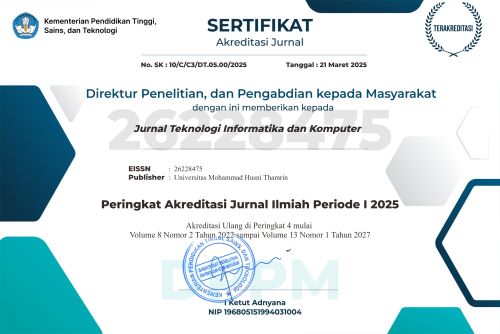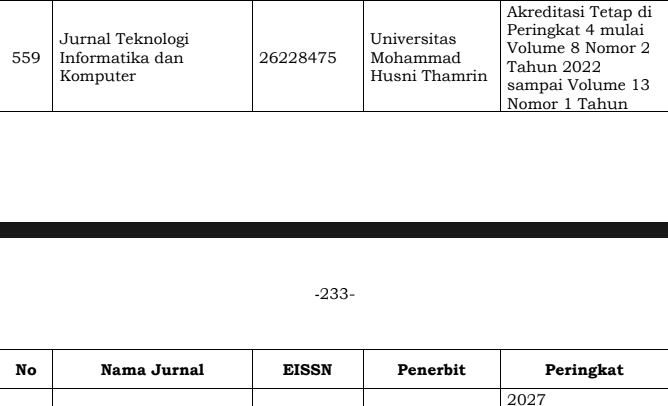Machine Learning-Based Obesity Classification: A Comparative Study Using Self-Reported Survey Data and Ensemble Learning Models
DOI:
https://doi.org/10.37012/jtik.v11i1.2585Abstract
Obesity has become one of the most pressing global health challenges of the 21st century, with its prevalence increasing at an alarming rate. Obesity is a major global health concern, contributing to an increased risk of cardiovascular disease, diabetes, and other metabolic disorders. Traditional assessment methods, such as BMI-based classification, often fail to incorporate lifestyle and behavioral factors, limiting their predictive capabilities. This study explores the use of machine learning for obesity classification based on self-reported survey data collected from individuals in Mexico, Peru, and Colombia. The dataset comprises 2111 instances with 17 attributes, covering demographic characteristics, eating habits, and physical activity levels. Eight machine learning models, including Logistic Regression, Random Forest, Gradient Boosting, Support Vector Machine (SVM), Decision Tree, K-Nearest Neighbors, Naïve Bayes, and AdaBoost, were evaluated using 10-fold cross-validation. Results indicate that Gradient Boosting achieved the highest accuracy of 96.49%, followed by Random Forest and SVM, demonstrating the effectiveness of ensemble learning techniques in capturing complex feature interactions. In contrast, Naïve Bayes and AdaBoost exhibited the lowest classification performance due to their strong assumptions about feature independence and sensitivity to noisy data. The findings highlight the potential of machine learning in obesity classification and underscore the need for advanced predictive models to enhance public health monitoring and intervention strategies.
Downloads
Published
Issue
Section
Citation Check
License
Copyright (c) 2025 Gregorius Airlangga

This work is licensed under a Creative Commons Attribution 4.0 International License.
Jurnal Teknologi Informatika dan Komputer allows readers to read, download, copy, distribute, print, search, or link to the full texts of its articles and allow readers to use them for any other lawful purpose. The journal allows the author(s) to hold the copyright without restrictions. Finally, the journal allows the author(s) to retain publishing rights without restrictions Authors are allowed to archive their submitted article in an open access repository Authors are allowed to archive the final published article in an open access repository with an acknowledgment of its initial publication in this journal.

Jurnal Teknlogi Informatika dan Komputer is licensed under a Creative Commons Attribution 4.0 International License.












